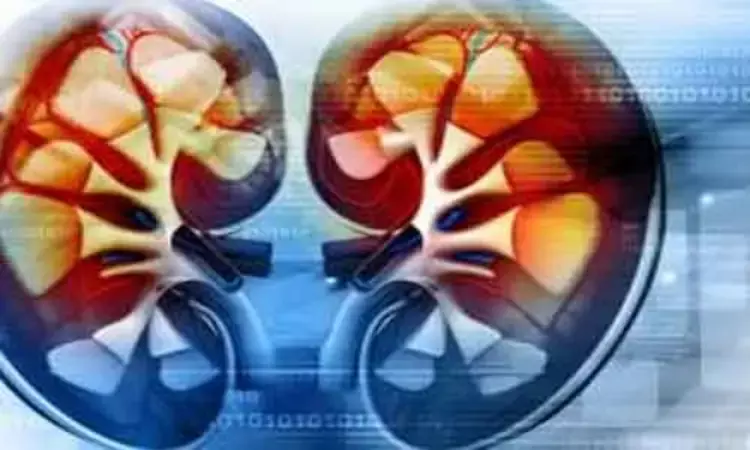- Home
- Medical news & Guidelines
- Anesthesiology
- Cardiology and CTVS
- Critical Care
- Dentistry
- Dermatology
- Diabetes and Endocrinology
- ENT
- Gastroenterology
- Medicine
- Nephrology
- Neurology
- Obstretics-Gynaecology
- Oncology
- Ophthalmology
- Orthopaedics
- Pediatrics-Neonatology
- Psychiatry
- Pulmonology
- Radiology
- Surgery
- Urology
- Laboratory Medicine
- Diet
- Nursing
- Paramedical
- Physiotherapy
- Health news
- Fact Check
- Bone Health Fact Check
- Brain Health Fact Check
- Cancer Related Fact Check
- Child Care Fact Check
- Dental and oral health fact check
- Diabetes and metabolic health fact check
- Diet and Nutrition Fact Check
- Eye and ENT Care Fact Check
- Fitness fact check
- Gut health fact check
- Heart health fact check
- Kidney health fact check
- Medical education fact check
- Men's health fact check
- Respiratory fact check
- Skin and hair care fact check
- Vaccine and Immunization fact check
- Women's health fact check
- AYUSH
- State News
- Andaman and Nicobar Islands
- Andhra Pradesh
- Arunachal Pradesh
- Assam
- Bihar
- Chandigarh
- Chattisgarh
- Dadra and Nagar Haveli
- Daman and Diu
- Delhi
- Goa
- Gujarat
- Haryana
- Himachal Pradesh
- Jammu & Kashmir
- Jharkhand
- Karnataka
- Kerala
- Ladakh
- Lakshadweep
- Madhya Pradesh
- Maharashtra
- Manipur
- Meghalaya
- Mizoram
- Nagaland
- Odisha
- Puducherry
- Punjab
- Rajasthan
- Sikkim
- Tamil Nadu
- Telangana
- Tripura
- Uttar Pradesh
- Uttrakhand
- West Bengal
- Medical Education
- Industry
American Society of Nephrology provides insights to CKD patients during COVID-19 pandemic

Washington, DC -- Due to pandemic of coronavirus disease 2019 (COVID-19) kidney patients and their caregivers have a lot of queries regarding management in new scenarios.
The American Society of Nephrology (ASN) has launched several initiatives in order to update them regarding COVID-19-related information on an ongoing basis to clinicians who care for patients with kidney diseases.
The ASN, in conjunction with the Centers for Disease Control and Prevention (CDC), has established a COVID-19 Response Team. Nephrologists, CDC physicians, infection preventionists, and dialysis nurses meet weekly to acquire new information and share it with the community, inform best practices, and adapt to the changing environment as the pandemic spreads.
ASN's publications--JASN, CJASN, and Kidney360--will provide valid, peer-reviewed information on COVID-19 as quickly as possible, with collections updated with new articles as soon as they are published. Recent examples include the following:
In a CJASN article on COVID-19, experts brought together the evidence-based guidance of the CDC and the practical judgment of clinicians to mitigate the risk of COVID-19 in dialysis facilities, offering information on patient screening, placement, and instructions; use of face masks and other personal protective equipment by staff; disinfection practices; and communication with health departments. (https://doi.org/10.2215/CJN.03340320)
A Kidney360 article offers the perspective of 2 U.S. nephrologists on managing patients undergoing hemodialysis who have suspected or confirmed COVID-19, noting the steps and precautions taken for patients presenting to dialysis clinics or emergency departments. (https://doi.org/10.34067/KID.0001452020)
Another CJASN article provides insights from clinicians in Washington state whose patient--who had been undergoing outpatient hemodialysis--was the first to die from COVID-19 in the United States. A series of policies and procedures were immediately put in place to protect other patients and staff. (https://doi.org/10.2215/CJN.03540320)
The effects of certain antihypertension drugs on the virus that causes COVID-19 is the topic of another CJASN article. The authors stress that these medications are critical to the health of many patients, who should continue to take them as prescribed until definitive studies can determine whether they inhibit the virus or make people more susceptible to infection. The authors have created a website that is being updated in real time to provide a reliable source of information (http://www.nephjc.com/news/covidace2). (https://doi.org/10.2215/CJN.03530320)
Dr Kartikeya Kohli is an Internal Medicine Consultant at Sitaram Bhartia Hospital in Delhi with super speciality training in Nephrology. He has worked with various eminent hospitals like Indraprastha Apollo Hospital, Sir Gangaram Hospital. He holds an MBBS from Kasturba Medical College Manipal, DNB Internal Medicine, Post Graduate Diploma in Clinical Research and Business Development, Fellow DNB Nephrology, MRCP and ECFMG Certification. He has been closely associated with India Medical Association South Delhi Branch and Delhi Medical Association and has been organising continuing medical education programs on their behalf from time to time. Further he has been contributing medical articles for their newsletters as well. He is also associated with electronic media and TV for conduction and presentation of health programs. He has been associated with Medical Dialogues for last 3 years and contributing articles on regular basis.
Dr Kamal Kant Kohli-MBBS, DTCD- a chest specialist with more than 30 years of practice and a flair for writing clinical articles, Dr Kamal Kant Kohli joined Medical Dialogues as a Chief Editor of Medical News. Besides writing articles, as an editor, he proofreads and verifies all the medical content published on Medical Dialogues including those coming from journals, studies,medical conferences,guidelines etc. Email: drkohli@medicaldialogues.in. Contact no. 011-43720751


